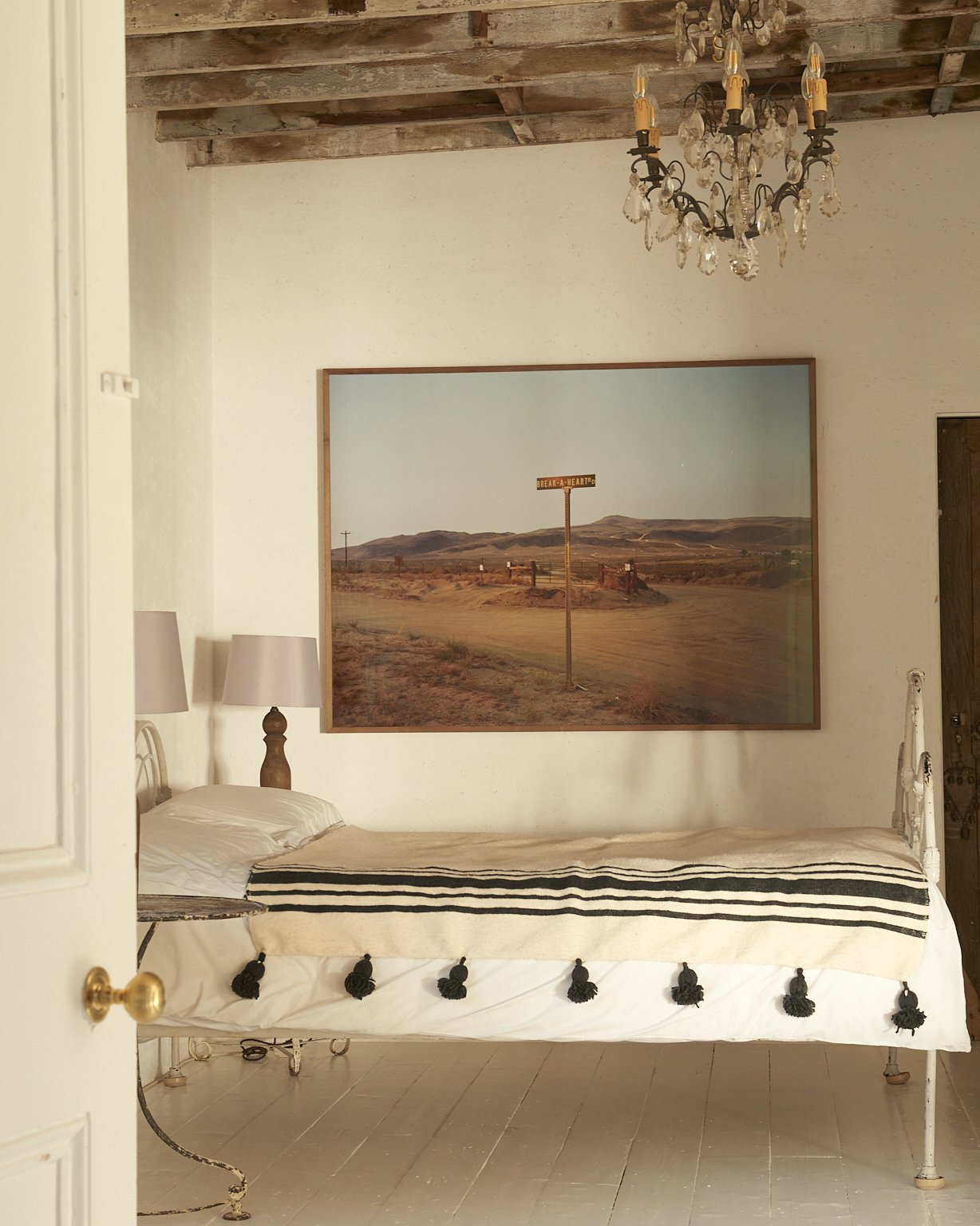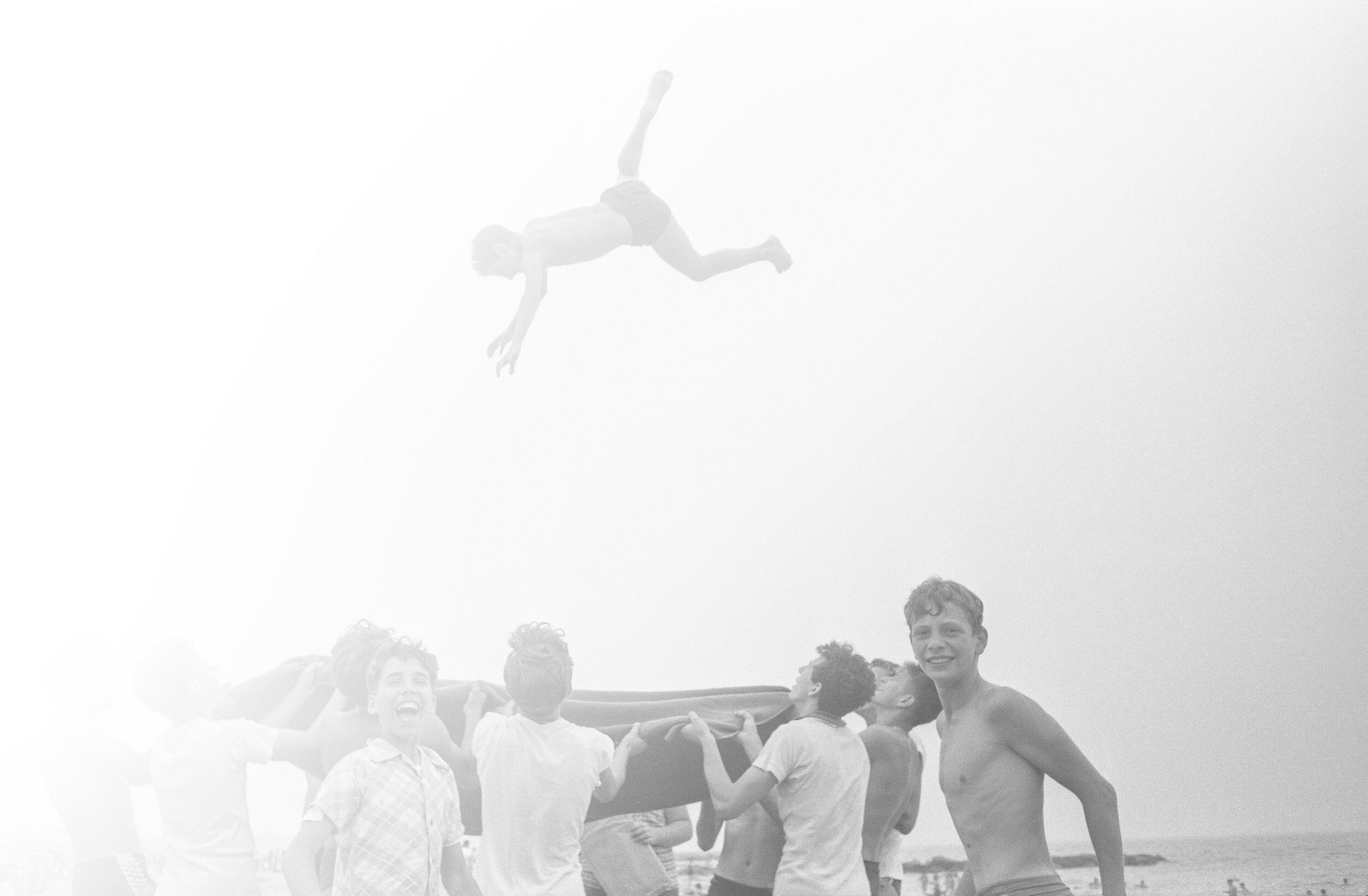Jane Hilton: Home On The Range
What happens when a British photographer falls in love with American culture, but can see right through it? Enter Jane Hilton, who has spent 25 years documenting the heart of Americana - with a particular focus on the American West.
Photography by: Jane Hilton
Jane Hilton
Home On The Range
What happens when a British photographer falls in love with American culture, but can see right through it? Enter Jane Hilton, who has spent 25 years documenting the heart of Americana - with a particular focus on the American West.
From working girls in Nevada and wedding couples in Las Vegas, to cowboys and Native Americans. Hilton lens challenges even her own preconceptions. And turns what many consider to be America’s underbelly into an endless source of inspiration.
Hilton’s series Dead Eagle Trail features her portraits of cowboys in their houses, surrounded by Western artifacts and iconography. Time magazine wrote, "Songs, books and films have romanticized the image of the cowboy as an enigmatic hero--a man and his horse, alone on the range. In Dead Eagle Trail, Jane Hilton gives us a glimpse of the man behind the myth, not busting broncos, but simply seated on the edge of his beds, in spartan rooms, in living rooms crammed full of memorabilia, or watching TV next to his gun safe."
In American Cowboy, Hilton captures the modern American cowboy where he is truly at home, on the land, both dwarfed and ennobled by the vast plains and endless highways that have defined his way of life for almost two hundred years. Shooting largely on color film with a 4 x 5” view camera, the resulting prints replicate the region’s deep, dusty earth tones and diffuse light with startling richness and detail. Yet Hilton is neither nostalgic nor naive.
In “Big Chief Gas Station, New Mexico,” a shuttered Native American business stands as a derelict memorial to the ancient cultures that American cowboy helped displace, and speaks to declining economic prospects for tribes and ranches alike. As Hilton writes in the introduction to Dead Eagle Trail, “Real cowboys will not disappear, but every generation produces fewer and fewer of them.”
In addition to American Cowboy and Dead Eagle Trail, Jane Hilton’s documentation of the American West includes extensive work in the wedding chapels of Las Vegas, as well as a fifteen-year span photographing and filming working girls and madams in the legalized brothels of Nevada. A book of portraits from the brothels, Precious, was published in 2013 (Schilt, Amsterdam). Hilton also produced a ten-part documentary film series for the BBC, Love for Sale, on life in the Nevada brothels.
Jane Hilton
Photographer, filmmaker, and former classical musician Jane Hilton was born in England and received a degree in Music and Visual Art from Lancaster University in 1984. Hilton's early work included both fashion and editorial photography alongside her own documentary projects. Her fascination with the American West was sparked on her first trip to Arizona in 1988. “I grew up with the Hollywood cowboy movies of John Wayne and Gary Cooper,” Hilton told The Telegraph in 2010. “I remember watching them on television with my dad on Sunday afternoons. Those gunslinging cowboys defending their land and women folk, all played out in the spectacular scenery of the American West – it seemed a long way from suburban England."
Her portrait of cowboy Pate Meinzer was shown at the National Portrait Gallery in London as a nominee for the Taylor Wessing Photographic Portrait Prize in 2009, and the work was published as a book in 2010 (Schilt, Amsterdam).
Hilton’s work has been exhibited widely throughout Europe and the United States. In spring 2015, photographs from American Cowboy were shown at the inaugural edition of Photo London. Her work can be found in the permanent collection of the Philadelphia Museum of Art, and her photographs are published regularly in The Sunday Times Magazine and The Telegraph Magazine. In 2013, Jane Hilton was awarded an Honorary Fellowship by the Royal Photographic Society.





































